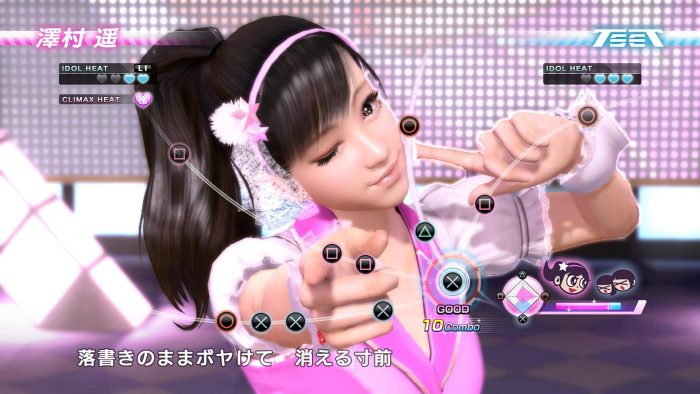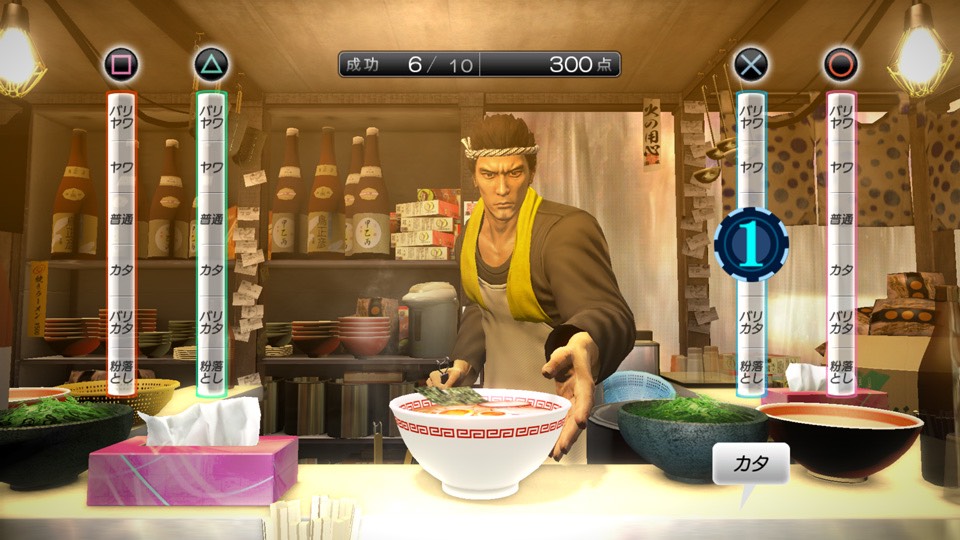Scroll down to see a video review of the Yakuza Remastered Collection!
We’re finally at the end of a long journey! Back in September, the Yakuza Remastered Collection began with the release of Yakuza 3. Finally, 3, 4, and 5 are all available, offering an incredible value for fans of the series. But how does Yakuza 5 Remastered stack up to the previous two offerings in the collection (and future installments)? The answer is… really, really well! By the end of the game, it has replaced Yakuza 0 as favorites in the series.
The Tojo Clan is in crisis! The prospect of a new chairman of Omi Alliance has driven Tojo Chairman Daigo Dojima to seek alliances with other yakuza families across Japan. But after he goes missing, Kiryu Kazuma (now a cab driver) is pulled back into the criminal underworld he so desperately tried to escape. Meanwhile, Kiryu’s adopted daughter, Haruka, is an up-and-coming idol in Sōtenbori, hiding her connection to her Yakuza Dad. Along with the perpetual prisoner Saejima, the moneylender with a heart of gold Akiyama, and the newcomer, a disgraced former pro baseball player named Shinada, they will untangle a web of conspiracy that will reshape the future of the Tojo clan forever.
Yakuza 5 brings an entirely new game engine to the mix and, in many ways, it is a major update of the previous two games. The graphics have gotten a significant upgrade, looking much more like a modern entry in the series. There are still some texture issues, and facial animations can feel a bit stiff, but the actual environments and characters look great!
On the gameplay side, combat feels better than ever; NPCs no longer look like refugees from a PS2 game, and animations are much smoother and more realistic, both in and out of combat. That said, the “new” engine is also incredibly buggy. NPC behavior has gone from kinda stupid to astoundingly dumb as they walk into walls, obstacles, each other, and your character. There is also quite a bit of glitchiness with them walking through walls, vanishing without warning, or stuttering in place. Additionally, the dialogue camera isn’t quite as smooth as it used to be, often sticking at weird camera angles and blocking the view of one or more characters. If memory serves, these game engine issues were mostly ironed out by Yakuza 0, but I was hoping that they could have gone back and fixed them up in the remaster of this game.
As in Yakuza 4, each character has their own combat style, some more fun than others. Kiryu has his usual Dragon-style, with a Tiger Drop move that basically becomes “press triangle to win” by the end of game. Saejima is still the powerhouse character, now beating up enemies with progressively larger and heavier objects. Akiyama is lightning quick, using his kicks to great advantage to end fights quickly. I personally found that newcomer Shinada’s combat style, mostly focused on tackles and weapon use, was the least fun. The game still doesn’t have the enjoyment of being able to switch styles on the fly, an innovation that will come into play in the next installment of Yakuza. But the combat system certainly provides enough depth and variety to keep every battle from feeling like the same old thing.

And then we come to Haruka’s chapters. If the combination of the words “karaoke minigame” and “core gameplay mechanic” light your fire, then I have some good news for you! For the life of me, I can’t figure out why they couldn’t have given Haruka a genuine combat style. Her adopted father is the Dragon of Dojima, for God’s sake! Surely at some point, she expressed curiosity to Kiryu about how to kill a man with a bicycle.
Despite this, her sections quickly became one of my favorite parts of the game. The gameplay suddenly taking a left turn into an Idol Simulator is exactly the kind of insanity I expect from Yakuza. What’s even more impressive is how the developers fleshed out this section of the game. Haruka’s “fights” aren’t just basic minigames, like darts or table hockey. Dance and Idol Battles are just as complex as the other characters’ combat styles, but in a completely different genre. It even adapts the Heat system, used in this case to pull off special dance attacks and destroy your opponent. Exactly like how Kiryu might repeatedly jump on a man’s face, just with added jazz hands.

As per usual in the multi-protagonist Yakuza games, all of the stories come together in the end, though not as neatly as usual. There are tons of dropped plot threads and build-ups to anticipated moments that never happen. For example, it’s disheartening how Haruka gets sidelined in the last chapter. With the entire story building up to her big Tokyo debut concert, it’s disappointing that you don’t get to play as her at all in the finale.
As per usual, Yakuza 5 simply stuns with the sheer amount of stuff in it. Every Yakuza game has an abundance of substories and minigames, but here it is taken to absurd lengths with a cab driving simulator, racing game, hunting sim, baseball sim, and, of course, all of Haruka’s sections. By the end of your initial runthrough, you will have likely seen only 30% of what the game has to offer. Moreover, almost none of this content feels half-baked. Racing on the highways of Nagasugai is incredibly exciting, the detailed baseball batting mechanics of Shinada make trips to the batting cages more fun than ever, and the joy of getting into hand-to-hand combat with a bear speaks for itself.
The only issue with this abundance of content is that much of it gets lost in the background. For example, while most Yakuza games offer two or three cities, Yakuza 5 offers five fully developed neighborhoods all over Japan (including returning favorites Sōtenbori and Kamurocho). The problem is that, once you leave these cities for the finale, there is little reason to return to them. It feels like a waste of incredible world design, as each city only appears in one chapter and is then left behind. Part of the joy of visiting Kamurocho in each Yakuza game is that you know the neighborhood like the back of your hand. Here, each city simply feels like a place you are passing through on your way to the finale.

The sound design of Yakuza 5 really shines. The voice acting is consistent with the usual stellar quality, sound effects are still face-crushingly satisfying, and the music is stunningly well written. As a significant component of the game is devoted to Haruka becoming an idol, you hear dozens of original songs in both Idol Battles and Dance Battles on the streets of Sōtenbori. There is some overuse of these tunes, such as “So Much More” (an earworm so potent that it will likely be playing in my head until Yakuza 7 is released), but on the whole, the music is super catchy and engaging with tons of returning karaoke favorites and pulse-pounding battle themes. The Yakuza 5 soundtrack now has a place on my iPhone, and will for the foreseeable future.
Yakuza 5 is considered a high-water mark for the series, and it’s easy to see why. I’ve rarely seen a game that packs in so much content, even compared to the other installments of the series which are bursting with side quests and mini games. Though the story loses some of its focus in the final chapter (a recurring issue with most Yakuza games), it still keeps you engaged from beginning to end. There are laughs, tears, broken faces, and a hell of a lot of dancing. In other words, it’s a quintessential Yakuza game that makes for a super-satisfying conclusion to the Yakuza Remastered Collection!



